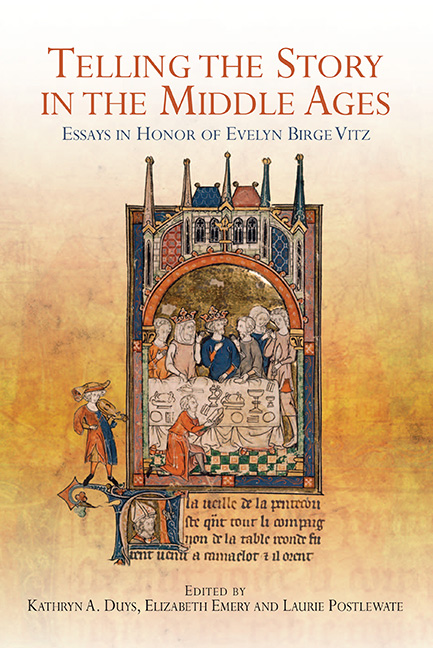Retelling the Story: Intertextuality, Sacred and Profane, in the Late Roman Legend of St Eugenia
Published online by Cambridge University Press: 17 June 2021
Summary
Modern scholars of medieval hagiography have recognized for some time that the phenomenon of mouvance, or variation and adaptation in the retelling and recopying of the stories of the saints, can offer important insights into the shifting values, agendas and anxieties, as well as the language and literary tastes, of medieval writers, readers and devotional communities. Timmie Vitz, to whom it is a pleasure and a privilege to dedicate this essay, has contributed significantly to the impressive body of scholarly work on the oral and written adaptation of Latin legends into the European vernaculars during the High and Late Middle Ages. Variation in the transmission of the Latin hagiographies has also attracted scholarly attention. For example, Monique Goullet and other literary scholars have studied the art of revision (réécriture) among named Latin authors, Carolingian and later, who produced hypertexts (revisions) of the hypotexts (original versions) of saints’ lives. Retelling the stories of the saints was not a Carolingian innovation, however. It was widely practiced in late antiquity during the formative stages of the great corpus of mainly anonymous early Christian Latin hagiographies that would bulk so large in monastic legendaries and popular devotion throughout the medieval period. In this essay, my representative specimen of such anonymous literature is the legend – part vita, part passio – of the ‘transvestite’ saint and martyr, Eugenia of Rome, which circulated widely in medieval Europe (as well as further east). It survives in two main versions, one of which, the original, was composed anonymously in the late fifth century, while the other is an early sixth-century retelling of the first. These two are classified by the Bollandists as, respectively, BHL 2667 and 2666. For the sake of simplicity and economy, in what follows I will designate the original version, the hypotext (BHL 2667), as M, and the revised version, the hypertext (BHL 2666), as R, after their earliest editors, the humanist scholars Mombritius and Rosweyde.
Known medieval authors, such as those studied by Goullet, invariably make clear when they are rewriting earlier works, and usually discuss their sources and motives in elaborate paratexts such as dedicatory epistles and prologues. The R version of Eugenia's legend, however, lacks any such ‘front matter’, gives no hint it is based on M, and amplifies the story in various ways without comment or apology, adding new characters, episodes and speeches, while cutting or substantially rewriting others.
- Type
- Chapter
- Information
- Telling the Story in the Middle AgesEssays in Honor of Evelyn Birge Vitz, pp. 157 - 170Publisher: Boydell & BrewerPrint publication year: 2015



